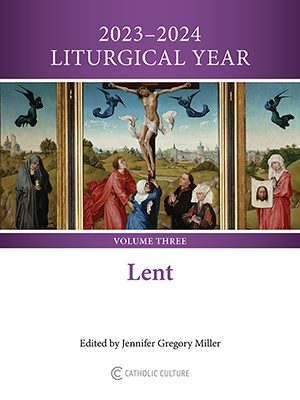Fathers of the Church
Epistle L: to Anthemius the Subdeacon
by Gregory the Great in 590-604 | translated by James Barmby, D.d
Gregory to Anthemius, &c.
Even as, through the ordering of God as it hath pleased Him, we have received the place of government, so ought we to be solicitous for the souls committed to us. Now we find that in the Eumorphian island, in which, as is well known, there is an oratory of the blessed Peter, Prince of the Apostles, a large number of men with their wives from various patrimonies have fled to it for refuge, through stress of barbarian ferocity This we consider inexpedient: for, there being other places of refuge near at hand, why should women have their abode there with monks? Wherefore we enjoin thy Experience by this present order from this time forward to allow no woman, whether she be under ecclesiastical jurisdiction or any other, to take up her abode or tarry there; but let them provide for themselves a place of refuge (there being, as has been said above, so many in the neighbourhood) wherever they may choose; so that all intercourse with women may henceforth be put an end to; lest, if we should desist from taking all the care we can, and guarding against the snares of the enemy, we henceforth (which God forbid) should be culpable in case of anything wrong taking place. Delay not, therefore, to give to the abbot Felix, the bearer of these presents, one thousand five hundred pounds of lead, which he is known to be in want of in the same island, which may be charged afterwards in thy accounts, when the whole quantity shall be known. So proceed, then, that thou mayest provide thyself with some, if any can be profitably used for the buildings of the same island. Moreover, since congregations of monks in the islands are exposed to hardship, we forbid boys under eighteen years of age to be received into these monasteries. Or, if there are any now there, let thy Experience remove them, and send them to the city of Rome. We desire thee in all respects to observe this in Palmaria also and the other islands.
Taken from "The Early Church Fathers and Other Works" originally published by Wm. B. Eerdmans Pub. Co. in English in Edinburgh, Scotland, beginning in 1867. (LNPF II/XII, Schaff and Wace). The digital version is by The Electronic Bible Society, P.O. Box 701356, Dallas, TX 75370, 214-407-WORD.







